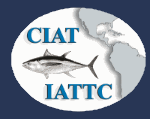Completed
Funded
Click to see projects by theme, goal or target:
- Objectives
- A proof-of-concept study to evaluate the types of data that can be reliably collected by electronic monitoring (EM) on Class 1-5 purse-seine vessels.
- Background
- Fisheries management and assessments require complete catch and bycatch information.
- Logbook data for Class 1-5 vessels provide basic catch information for target species, but no information on tuna discards and incomplete information on catches of non-target species.
- EM systems may provide cost-effective and practical solutions.
- Relevance for management
- Better-quality and higher-resolution data on catches and discards of target and non-target species by unobserved purse-seine vessels would improve the staff’s stock assessments and management advice
- Duration
- 23 months
- Workplan and status
- 2018: January-February: Identify EM capabilities from manufacturers.
- March-May: Survey of infrastructure configuration and fishing operations of small vessels. Identify candidate vessels; purchase EM equipment.
- June 2018-January 2019: collect EM and observer data on small purse-seine vessels.
- 2019: February-April: process EM data.
- May-August: Statistical comparisons of EM and observer data; write project report.
- September-November: if proof-of-concept warranted, development of a sampling design for a pilot study using EM aboard small purse-seine vessels.
- External collaborators
- Collaboration of fishing industry, observers and technology companies is essential.
- Deliverables
- May 2018: Progress report to SAC-09 meeting
- Updated date: 01 May 2022
- Progress summary for the reporting period
- Since the previous report (Oct 2020), the IATTC staff in combined effort with Digital Observer Services (DOS) has been generating and analyzing EM data; to date, the resulting EM-data from 22 fishing trips have been analyzed (12 trips IATTC; 10 trips DOS). Also, the EM standards document (SAC-11-10) was presented in the SAC.
- Progress will be reported at SAC-12, including a condensed document with the staff recommendation to the CPCs on the minimum standards for EM (EMS-01-01), and the workplan for the implementation of EM in the EPO (EMS-01-02).
- June: IATTC staff started generating EM-data for all four participant vessels.
- October: IATTC staff presented the document on minimum standards for EM (SAC-11-10) for tuna fishery, including purse-seine vessels.
- January - March:
- Produced and analyzed EM-data for 22 fishing trips.
- Write project report.
- April:
- EM workshop to discuss the document SAC-11-10 and minimum standards for data collecting based on the results of this project.
- May:
- Submit the final report of the project.
- Presented a draft for final minimum standards recommendations (document EMS-01-01) and a workplan to present revised standards on the purse-seine fishery, based on the results of the project, as part of the implementation of an EMS in the region (document EMS-01-02).
- Challenges and key lessons learnt
- COVID-19 pandemic delayed the review of EM-data for 3 months. The delay was mitigated by subcontracting DOS for generation of EM data.
- May 2019:
- Progress report presented at SAC-10.
- SAC-10-12 Electronic monitoring of purse-seine vessel activities and catches
- Presentation: Progress of electronic monitoring testing in the Eastern Pacific. Side event hosted by the ISSF at 94th Meeting of the IATTC.
- Participation: SPC/FFA/PNAO DCC Longline Electronic Monitoring (EM) Planning Workshop. Honiara, Solomon Islands. To gain and share experiences on EM with other RFMOs. Participation sponsored by The Pew Charitable Trusts.
- Progress report at SAC-11
- Proposal for minimum standards in EM for the EPO (SAC-11-10).
- Project terminated.
- An EM workshop was held to discuss the document SAC-11-10, to present a compilation of the EMS recommendations, and to present a workplan for EMS implementation.
- Progress report at SAC-12.
- EM sampling coverage and EM data review rates analyses for the purse-seine fishery.
- Comments
- For Class-6 vessels, the objective is to assess which activities of the on-board observers can be performed by EM (Project D.2.c, now combined with this project).

